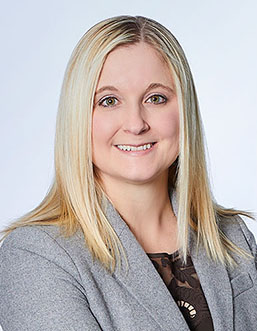As the world continues to transition, many lawyers (as well as businesses around the country) are left weaving virtual practice into their professional routines in some capacity. On March 10, 2021, the ABA Standing Committee on Ethics and Professional Responsibility released Formal Opinion 498 reminding attorneys to stay cognizant regarding virtual practice.
The ABA Opinion defines “virtual practice” very broadly to include any practice outside of the traditional “brick-and-mortar” office. The ABA Model Rules of Professional Conduct permit virtual practice but set minimum requirements, especially regarding the increased use of technology. Virtual practice commonly implicates the key ethics rules discussed below:
- Competence, Diligence, and Communication – Model Rules 1.1., 1.3, and 1.4 address lawyers’ core ethical duties of competence, diligence, and communication with their clients. Comment [8] to Model Rule 1.1. explains, “[t]o maintain the requisite knowledge and skill [to be competent], a lawyer should keep abreast of changes in the law and its practice, including the benefits and risks associated with relevant technology, engage in continuing study and education and comply with all continuing legal education requirements to which the lawyer is subject.” (Emphasis added). Whether interacting face-to-face or through technology, lawyers must “reasonably consult with the client about the means by which the client’s objectives are to be accomplished; …keep the client reasonably informed about the status of the matter; [and] promptly comply with reasonable requests for information… .” The ABA suggests “lawyers should have plans in place to ensure responsibilities regarding competence, diligence, and communication are being fulfilled when practicing virtually.”
- Confidentiality – Under Rule 1.6 lawyers have a duty of confidentiality to all clients, and therefore, “shall not reveal information relating to the representation of a client.” A necessary corollary of this duty is that lawyers must at least “make reasonable efforts to prevent the inadvertent or unauthorized disclosure of, or unauthorized access to, information relating to the representation of a client.” Similarly, lawyers must take reasonable precautions when transmitting communications that contain information related to a client’s representation. If the method of communication affords a reasonable expectation of privacy this may not require special precautions, but if it does not, then special precautions must be taken. As ABA Formal Opinion 477R summarizes, “[a] lawyer generally may transmit information relating to the representation of a client over the Internet without violating the Model Rules of Professional Conduct where the lawyer has undertaken reasonable efforts to prevent inadvertent or unauthorized access.”
- Supervision – Lawyers with managerial authority have ethical obligations to establish policies and procedures to ensure compliance with the ethics rules, and supervisory lawyers have a duty to make reasonable efforts to ensure that subordinate lawyers and nonlawyer assistants comply with the applicable Rules of Professional Conduct. Practicing virtually does not change or diminish this obligation.
While the Model Rules permit virtual practice, there are still limitations. For example, despite being virtual, trust accounting rules must still be strictly followed, including writing and depositing checks when necessary and maintaining full trust-accounting records. The lawyer must also have a process for receipt and handling of paper mail, a process to docket correspondence and communications, and a process for directing clients and other important individuals on contacting the lawyer—especially when the lawyer is not physically in the office when and where expected.
The Model Rules may have different implications when a lawyer practices virtually, but the obligations do not change. Lawyers should be cognizant of their ethical obligations and have a plan in place to ensure they are met.
